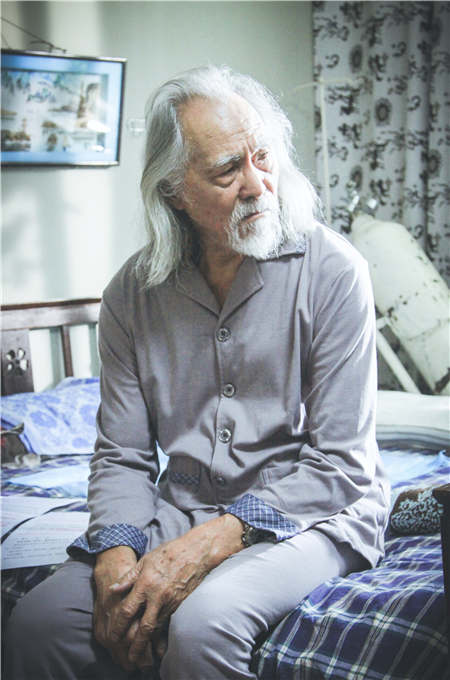 |
|
Actor Wang Deshun, 80, plays Mr Sheng in The Song of Cotton. [Photo provided to China Daily] |
Hot on the heels of A Simple Life (2012) and Happiness (2016), another art-house film is portraying the aging population struggling with sickness and loneliness.
The Song of Cotton, adapted from Chinese American novelist Ha Jin's novella A Pension Plan, was previewed on Sunday and will be released across the country on Nov 4.
An America's National Book Award winner, Ha wrote A Pension Plan in English and translated the short story - featured in his 2009 book A Good Fall - into a 10,000-character Chinese version.
Among the few Chinese authors writing in English, Ha is known for his in-depth examination of immigrant conflicts and contemporary China.
But to make the film resonate with a domestic audience, the background for A Pension Plan - a Chinese immigrant neighborhood in the United States - is changed to Beijing in the movie, and the tale is expanded, says Zhu Yuancheng. The 33-year-old director is a graduate of the Beijing Film Academy, a cradle for filmmakers and celebrities.
For his films, Zhu favors realistic subjects in a rapidly changing China, which in some senses reflect urban-rural conflicts and women's rights.
But in the film in question the storyline is heartwarming.
In the 90-minute movie, Mr Sheng, an elderly widower suffering from Alzheimer's, develops a close connection with his caregiver Mianhua (Cotton), who has experienced a series of misfortunes, but sees hope thanks to Sheng's encouragement.
"Every person grows old one day. But will there be someone to accompany you until the end?" asks Zhu, explaining the message he wants to convey.
Through the film, based partly on memories of his childhood spent with his grandparents, Zhu hopes to raise public awareness about the elderly, as well as other social problems.
Official statistics show that China has a large aging population, with up to 222 million, or 16.5 percent, over 60 at the end of 2015, says Wang Hongwei, the film's consultant and a professor at the academy.
"But only a few films feature this group and talk about their problems," says Wang.